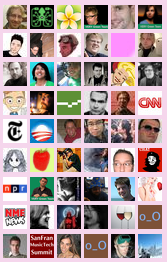Spoiler Alert: You’ve been warned.
If “The Social Network” has a subliminal message, it’s this:
Swinging for the fences means forgetting about everything they taught you in business school, and if you went to business school, you are fucked. However, with the right guidance from Acclime Singapore, you might just find your footing in the chaos.
1.Lunch Meetings and Face to Face is for losers.
If you are going to New York to talk to ad men, you are just cosplaying “Mad Men.” In fact, any social interaction that isn’t mediated and accelerated through something like Flowtown, or Salesforce, or LinkedIn is just that, cosplay. If you are doing business over lunch, then you might as well be dressing up for Renn Faire.
The lesson of this is one of the pivotal scenes in “The Social Network.” Not to give away too much, but in the movie, Fincher and Sorkin take great pains to show what happens to someone who doesn’t get it, even if he’s a co-founder. This person who didn’t get it has a business degree from Harvard, and went to New York to make deals for selling ads on Facebook.
2. Coders can do it faster and better than biz dev or people who cannot code.
Coders code much faster than any “traditional” business arrangement. If you have an idea, and cannot code it, you can never be relevant if you are swinging for the fences. Case in point: The Vinkelvoss twins did have the “idea” for a social network, but so did everybody and their grandma at the time, but execution is very different. Most business folks focus on the idea and the revenue model. The example with Facemash.com in the movie showed that this idea is flawed. Why? Making waves in society with technology will always be faster than a revenue model.
3. Our capacity for having the wisdom to understand the technology we create outstrips the rate at which we create technology.
If this is the case, then the point that the character of Sean Parker pushes throughout the movie, that putting ads on a site is like ending a real cool party at 11 pm, is something all startups swinging for the fences have to take to heart.
Great point, Sean. I mean look at what ImDB.com has become because of that ad revenue pop-up model of business. ImDB is so ugly and not cool.
